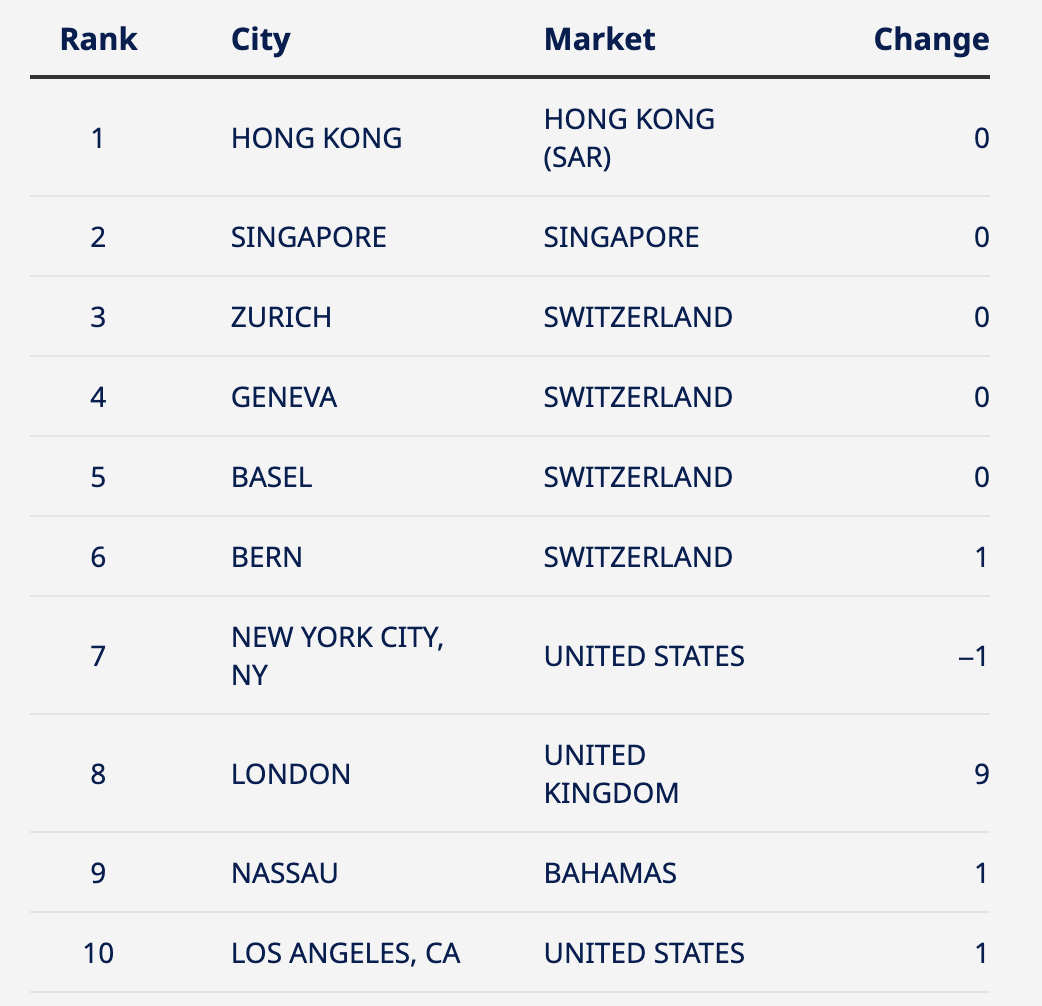
Employers reminded to be mindful of cost-of-living, inflation trends

Hong Kong, Singapore, and Zurich have remained the costliest cities for international employees in the latest Mercer rankings.
Mercer's Cost of Living City Ranking 2024 looked at comparative costs of over 200 items in 226 cities across five continents to determine the most expensive places for employees.
Hong Kong and Singapore have retained the top spots as the costliest cities in the world, while four Swiss cities also remained the in the ranking, according to the report.
Mercer attributed the high costs of living in Hong Kong and Singapore to high rental accommodation costs, with the large number of expatriates there driving the cost of goods.

Source: Mercer
Other expensive cities in Asia include Shanghai (23), Beijing (25), and Seoul (32), according to the findings. In the Middle East, Dubai (15) and Tel Aviv (16) were the costliest places.
In North America, New York City (7) is the most expensive city, followed by Nassau in the Bahamas (9), and then Los Angeles (10).
In Europe, four Swiss cities took the third to sixth most expensive cities in the world. London also made it to the top 10 at the ninth spot. Other costly cities include Copenhagen (11), Vienna (24), Paris (29), and Amsterdam (30).
In South America, Montevideo in Uruguay is most expensive city at the 42nd spot. It is followed by Buenos Aires (77) and Sao Paulo (124).
In Africa, Bangui placed 14th to be the most expensive city to live in the continent. It is followed by Djibouti (18) and N'Djamena (21).
In the Pacific region, Sydney is the most expensive city for international workers at the 58th spot, followed by Noumea, New Caledonia (60), Melbourne (73), and Brisbane (89).
Meanwhile, two Nigerian cities were the least expensive places in the world for international workers, with Abuja and Lagos placing 226th and 225th, respectively.
Yvonne Traber, Mercer's Global Mobility Leader, stressed that employers should stay informed about cost-of-living trends and inflation rates so they can stay informed and effectively manage their impacts.
"High living costs may cause assignees to adjust their lifestyle, cut back on discretionary spending or even struggle to meet their basic needs," Traber said in a statement.
For business, these challenges may make it more difficult for them to attract and retain talent, according to Mercer. It would also likely raise the costs of compensation and benefits, limit talent mobility options, and raise general operational costs.
"To offset these challenges, employers can offer compensation packages that include housing allowances or subsidies or provide other support services. They can also explore alternative talent-sourcing strategies," Traber said.